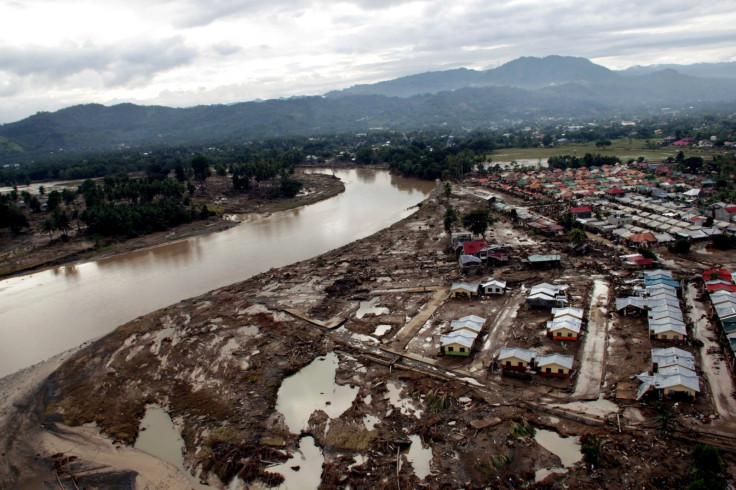Floods, freezes and premature deaths: Why tiny increases in global temperatures matter

According to the Met Office, 2014 is likely to be the hottest year on record both for the UK and globally. The UK temperature for the year up to 25 November was 1.6ºC above the 1961-1990 average. If still the case on New Year's Eve this would be the warmest year for the UK since records began in 1910, and one of the warmest years for central England since records began in 1659.
Changes in temperature of this magnitude do not sound alarming. After all, many parts of the world are a few degrees warmer than the UK and enjoy a pleasant climate. Problems are arising, though, because the entire Earth's climate system is warming, and rapidly; faster than people and wildlife can adapt. Changes in averages also mask more extreme variations in seasonal and local maximum temperatures.
Regardless of whether this year is a record-breaker or not, temperatures globally have been rising since the 1950s. Each decade has been warmer than the last. Scientific research shows that only emissions of greenhouse gases from human activity – primarily the burning of fossil fuels, and deforestation - can explain this increase. Rises are inconsistent with natural factors, like changes in solar activity. Almost all climate scientists across the world agree that if greenhouse gas emissions continue to increase the world will continue to warm, with temperatures rising between 3 and 5ºC by the end of the century.
It's not too late to avoid this. Technologies exist to limit further warming. If these are deployed quickly there remains a good chance of keeping the global temperature increase to no more than 2ºC. However, even this level of warming will have consequences.
For example, the heatwave in August 2003 resulted in over 2,000 premature deaths in the UK, and tens of thousands across Europe. The UK's highest ever daily maximum temperature was recorded, 38.5ºC in Kent. But the average for the month for the UK was just 2.2ºC higher than normal. Future projections suggest half of UK summers by 2050 will be as hot as 2003 or hotter. Premature deaths from high temperatures are expected to triple to 7,000 per year, taking account of our growing, ageing population. Premature deaths per year from cold winters should decline by the 2050s, but by a lesser number - 1,000.
There is some evidence that the chance of severe cold winters could actually be higher in the next few decades. Some scientists suggest there's a link between changes to the Arctic region, which is warming rapidly and losing ice, and the recent behaviour of the North Atlantic jet stream. A meandering jet stream last winter caused the 'polar vortex' event across much of North America, with record low temperatures recorded. We need to be prepared for extremes in both heat and cold in the coming years.

More flooding is also expected as a result of relatively modest changes in UK temperatures. A warmer atmosphere contains more moisture, and warm moist air energises storms. Models suggest the chance of an extremely wet winter, like last winter, has already increased by 25%. The latest, more detailed, climate models also suggest an increasing chance of heavy summer rainfall. One study projects the chance of extreme summer rain storms in southern England increasing by a factor of five by the 2080s.
Coastal flooding will also become more likely. Sea levels have already risen by around 15cm over the last century and the annual rate of increase has been accelerating in recent decades. By the end of this century sea levels are expected to be 40–70 cm higher than they are now, and could be 1 to 2 metres higher under extreme scenarios.
Benefits
There may be some opportunities. Farming in some regions of the Northern Hemisphere could benefit from longer growing seasons, and some fisheries may be more productive too. Arctic shipping lanes will be open for longer periods. However, the net effect of climate change is highly likely to be negative, with the potential for severe, pervasive and irreversible impacts increasing as temperatures rise.
Any short-term benefits of climate change may be negated by other factors. For example farming yields may be constrained by poor soil quality and water shortages in a warmer climate. There is evidence that farming yields in some regions of the Southern Hemisphere have already been impacted.
It is important to plan for a range of different climate futures when making decisions that have long-term implications. For example, plans for new homes, new infrastructure, and wildlife conservation should all be sensible for a range of future climate scenarios. The Committee on Climate Change provides independent advice to the UK Government on preparing for climate change. In 2015 the Committee will present the UK Parliament with a report on those areas where sensible and proportionate steps are being taken, and elsewhere where stronger policies are needed.
Daniel Johns is the head of adaptation at the Committee on Climate Change. The CCC is an independent, statutory advisory body to the UK Government.More info can be found on the CCC website.
© Copyright IBTimes 2024. All rights reserved.





